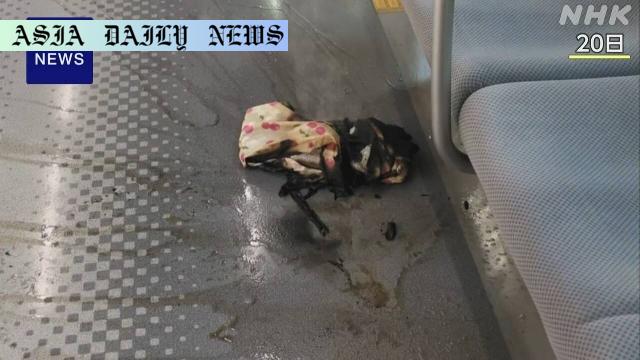Battery Recall: A recalled mobile battery sparked a fire on a JR Yamanote Line train in Tokyo, leaving five people with injuries.
A mobile battery under recall caused a fire on a Tokyo train, leaving five people with injuries.
The JR Yamanote Line incident occurred between Shinjuku and Shin-Okubo stations.
The battery was found to be from a recalled batch linked to 16 prior fire cases.
Roughly 39,000 units of the model were shipped until August 2021.
The Tokyo police are continuing investigations into the incident.

Introduction: The Dangers of Recalled Products
Product recalls are issued to protect consumers from potential dangers, yet their effectiveness depends on public awareness and timely action. The recent fire on a JR Yamanote Line train in Tokyo sheds light on the criticality of these recalls. A mobile battery, which had been flagged in a previous recall due to fire hazards, ignited while in use, injuring five people and bringing product safety into sharp focus.
Incident Overview: The Tokyo Train Fire
The incident occurred on a Sunday afternoon, as the train moved between Shinjuku and Shin-Okubo stations. A woman in her 30s reported that her mobile battery grew excessively hot while charging her phone. Despite disconnecting the battery, it caught fire within 30 seconds, creating panic among passengers. Quick action by fellow passengers using a fire extinguisher prevented significant damage. However, the fire caused minor injuries to five people, including a burn on the battery owner’s hand.
Details on the Recalled Battery Model
Investigations revealed that the battery in question belonged to a specific model that had been recalled previously by the seller and flagged by the Consumer Affairs Agency. Approximately 39,000 units of this model were shipped over a 20-month period until August 2021. A history of 16 fire-related incidents has already been linked to this model, further emphasizing its hazardous design. Earlier in Kanagawa Prefecture, a similar battery malfunction occurred, causing fire damage. This highlights ongoing gaps in product recall efficiency and consumer awareness.
Understanding the Wider Implications
The Tokyo train fire underscores the importance of consumer education and compliance with recall notices. Despite multiple fires being associated with the specific battery model, some consumers remain unaware of its risks. This lapse could stem from insufficient recall announcements or personal negligence in monitoring product safety. Additionally, the incident raises concerns about monitoring mechanisms in place to ensure dangerous products are pulled from circulation.
What Should Be Done
Moving forward, stricter measures are needed to avert such incidents. Manufacturers must improve recall outreach, possibly by leveraging digital platforms to notify users about faulty products. Clearer labeling, mandatory registration of devices, and incentivized recycling programs for recalled products could also bridge gaps in safety. At the societal level, consumers must take responsibility to actively verify the safety status of their products, especially those with a history of recalls.
Commentary
The Importance of Addressing Product Recalls Effectively
The fire on a Tokyo train caused by a recalled mobile battery is a sobering reminder of the risks posed by consumer products that fail to comply with safety standards. Despite established recall procedures, cases such as this reveal cracks in implementation and awareness, which can have dire consequences. This incident calls for collective responsibility from both manufacturers and consumers to ensure product safety.
Manufacturers’ Responsibility in Preventing Future Tragedies
Manufacturers bear the primary responsibility for the safety of their products. In cases of identified faults, companies must act promptly and remain transparent about risks. The Tokyo fire highlights potential inadequacies in the recall process. Were affected users adequately informed? Did the seller implement effective measures to retrieve recalled batteries? These are important questions that demand immediate introspection and action.
Consumer Awareness and Engagement
While manufacturers play a vital role, consumers are equally responsible for their safety. Staying informed about recalls and acting promptly can prevent accidents. However, many users remain unaware of recall notices due to either ignorance or lack of communication channels. Governments and companies must address this gap by improving outreach and educating the public about the importance of responding to product recalls.
Enhancing Safety Through Regulation and Innovation
Regulatory bodies must also step up in enforcing stricter safety checks and recall mechanisms. Perhaps it is time to mandate better digital solutions, such as smartphone alerts or email notifications, to inform consumers about recalled products. Additionally, incentivizing product returns could encourage users to comply with recall efforts, thereby reducing safety risks associated with faulty designs.


